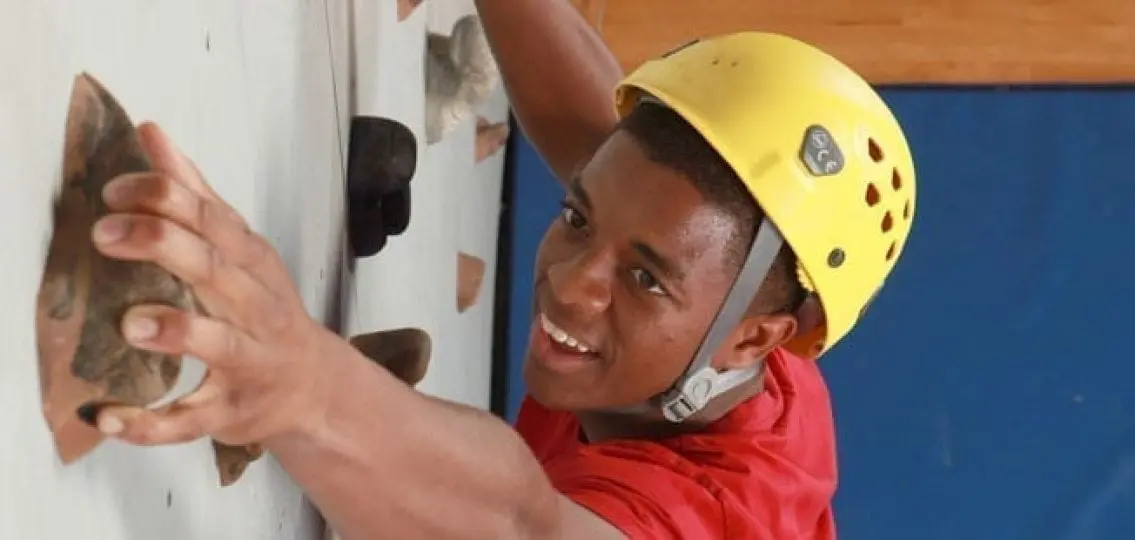What does the checklist for your teenager’s next few years of high school look like? Chances are it includes:
- Good grades
- Solid SAT or ACT scores
- Positive social experiences
- Rewarding extracurriculars

But what if that checklist didn’t guarantee your teenager’s success beyond perhaps getting into college? In fact, what if the checklist that perhaps most guaranteed your teenager would grow into a thriving adult looked more like this:
- Develop grit
Yes, grit. For most parents, grit is not what leaps to mind when we think about what we want for our teenagers. But it should.
That’s because researchers have identified that when it comes figuring out the key to success, grit is an important piece of the equation.
So, what is grit? “It’s perseverance in pursuit of a passion,” explains Paul Tough, author of How Children Succeed: Grit, Curiosity and the Hidden Power of Character. “It’s those people who have a big goal or dream and don’t let anything interrupt them in pursuit of that.”
Tough suggests that our schools—and perhaps we parents—have been too focused on our teenager’s cognitive abilities. “IQ, the narrow band of skills that get measured on standardized tests, is not the only quality that matters in a child’s success.”
“Scientists and educators have identified a very different set of skills that are at least as important as IQ,” he adds. These skills include traits like curiosity, conscientiousness, self-control, optimism and, you guessed it, grit. “Grit gets most of the attention,” says Tough.
The credit for that goes to University of Pennsylvania psychologist, Angela Duckworth. Duckworth developed a way to measure grit via a questionnaire she calls the “grit scale.” She found that how well an individual scores on this grit scale is a better predictor of success than IQ, test scores, grades, and other talents.
For example, Duckworth found that the most successful freshmen at Penn were students with the highest grit scores. Grit was more important than being at the top of their high school class (as measured by GPA and test scores). She found the same thing with contestants at the National Spelling Bee. Those with the most grit beat those with higher verbal IQ scores. And her test was a great predictor of success at West Point. The cadets with the highest grit score were most likely to finish Beast Barracks, the grueling basic-training course.
It’s not that our cognitive abilities and other talents aren’t important. They are. In fact, most of us, no matter how much grit we have, will never write a Pulitzer Prize winning novel or win a marathon or make a major scientific breakthrough.
Rather, Duckworth has shown that these abilities, on their own, are not a guarantee. Grit matters too.
Researchers are still investigating why some of us have lots of grit and others not so much—and, as Tough jokes, there are no grit camps or classes … yet. But there are ways that parents can foster grit in their children that may at first seem counterintuitive to our instincts to protect them.
3 Ideas About How To Teach Resilience:
1. Let your kids stumble.
In fact, instead of more, we parents may need to do less.
Take a look at Duckworth’s questionnaire, and you’ll see that how we respond to setbacks is a key to grit. “A lot of how parents protect their kids is by intervening,” Tough told Your Teen. “It’s born out of thinking we’re helping our kids. But it can be counterproductive.” Indeed, when teenagers overcome setbacks, they learn that if they try again and again, they can succeed.
When it comes to homework, for example, leave it alone. “Don’t bring it to them” when they forget it, says Madeline Levine, psychologist and author of Teach Your Children Well. “That’s a really valuable lesson. Let your teenager can come up with a better strategy.” While it’s difficult to watch our teenagers stumble, think of it as chalking one up for grit.
“At some point, no matter how smart you are, you will hit a wall,” notes Brent Bussboom, an English teacher at Reno High School. “The teenagers whose parents let them struggle appropriately are the kids who know that if they work at it, they are going to get it.”
2. Make sure they are challenged.
Experts also advise parents to ensure that teens’ work is challenging enough.
While writing How Children Succeed, Tough spent many hours with Dominic Randolph, headmaster of the Riverdale Country School in New York City. “His school was doing fantastically in lots of ways,” explains Tough. “But, he was worried about his students. He felt that the school and the parents were protecting the students from real challenge.”
The students at Riverdale worked hard. But academic stress is not necessarily a grit-building challenge. “For me,” says Tough, “it’s like the difference between exercising on a treadmill and climbing a mountain. Running on a treadmill is really hard. But punching in those numbers to set your workout pretty much guarantees you are going to make it through the end. But, when you climb a mountain, you don’t know what’s going to happen. You are taking a risk and you might actually fail.”
Now, before you pick up the phone and call Outward Bound, consider what Tough means by challenge. “I think there are ways that teenagers want to be challenged—and take some risks. They might ride the subway alone or take a harder class where they might get a B minus instead of an A. It’s that kind of push that many kids need.”
3. Encourage them to push themselves.
Another way to approach building grit is to encourage your teenager to take a step outside their comfort zone. Encourage them to confront a challenge where the outcome is not guaranteed.
Some ideas. Has your teenager been in the same theater club since elementary school? Encourage them to audition for a more prestigious company in town. Does your teenager love playing in the high school band? Help them look for other performance opportunities out there, like perhaps your city’s youth orchestra program. Do you drive your teenager everywhere? Get out the bus schedule.

And, if these new experiences don’t go so well, chalk another one up for grit and encourage your teenager to try again.




